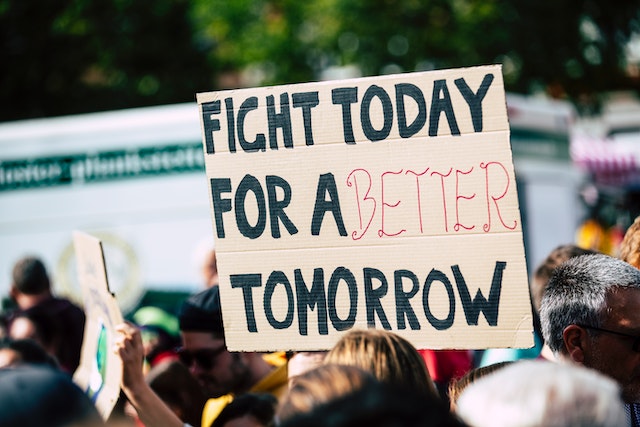Around the world, we see young people at the forefront of climate change activism. As those who will be the most affected by the repercussions of climate change, young people feel a particular sense of responsibility to protect the environment. This is also evident in the growing number of young green entrepreneurs around the world supported by Youth Business International’s (YBI) global network. As we see more and more young people start businesses with an environmental mission, it is crucial that we provide them with the support they need to succeed. Our positioning paper ‘Shaping A More Inclusive, Equitable and Sustainable Future: Supporting young social and green entrepreneurs’defines key areas of support in personal development, business development and enabling environment facilitation for young green and social entrepreneurs.
Personal Development
Young green entrepreneurs have incredible passion but sometimes find it difficult to connect it to purpose and profit. They need the skills to channel their passion into developing a marketable business idea that has economic value and purpose. They need to align passion and purpose alongside profit, and to develop leadership qualities to help them navigate potential tradeoffs. Personal development support for social and green entrepreneurs needs to help build confidence and capability in these areas. It needs to help the young entrepreneur tell their story, and the story of their business, with conviction and authenticity.
Young green entrepreneurs may need a greater degree of patience and persistence than their entrepreneurial peers. Green business models and ideas — although growing in number and stature — remain nascent concepts. Innovative ideas and approaches may not be immediately understood by customers, investors, networks, or other actors in the ecosystem. It takes time to socialise the idea and bring people along. In many cases, an entrepreneur may need to build the market for the product or service from scratch. This requires additional patience and persistence.
Business Development
Unlike traditional businesses, the success of a business with an environmental mission is not only measured by its profit by the impact it is making and the degree to which it is achieving its environmental mission. It is therefore vital for young green entrepreneurs to learn how to measure and manage their business’ impact. With limited resources, measuring impact can be a vital component of effective planning and strategic decision-making. By figuring out what’s working and what’s not, social and green enterprises can focus their time and effort to where they matter most. Measurement can also be a critical part of risk management, giving sight of potential threats and providing an evidence base for mitigation. Externally, an entrepreneur may increasingly need to demonstrate their impact to their stakeholders, particularly as awareness grows of green or impact ‘washing’. Measuring impact can help ensure accountability and transparency – not only to the team, but also to customers, donors, and beneficiaries.
There are various forms and degrees of impact management. Some entrepreneurs develop management, monitoring and measurement systems to track and report on performance against defined impact parameters. Others find this too costly or time-intensive, may not see the need, or may not have the necessary skills at the startup phase. YBI members encourage young entrepreneurs to consider key performance indicators of impact — or else they won’t know if the business has any impact at all.
Enabling Environment Facilitation
Markets for green products and services aren’t always straightforward, particularly for new and innovative solutions. In some cases, a young entrepreneur may need to develop the market themselves. This requires partnerships, networks, capitalising and thinking ‘outside the box’ to find new pathways to market and market opportunities. YBI members can help young green entrepreneurs identify partners and channels and facilitate introductions. Similarly, young people may need resources to develop and test their products. This can require connections with universities, labs, innovation centres, and institutes. This is an area where YBI members can create value.
Read more on how to support young green entrepreneurs in our positioning paper ‘Shaping A More Inclusive, Equitable and Sustainable Future: Supporting young social and green entrepreneurs’ at www.youtbusiness.org.


